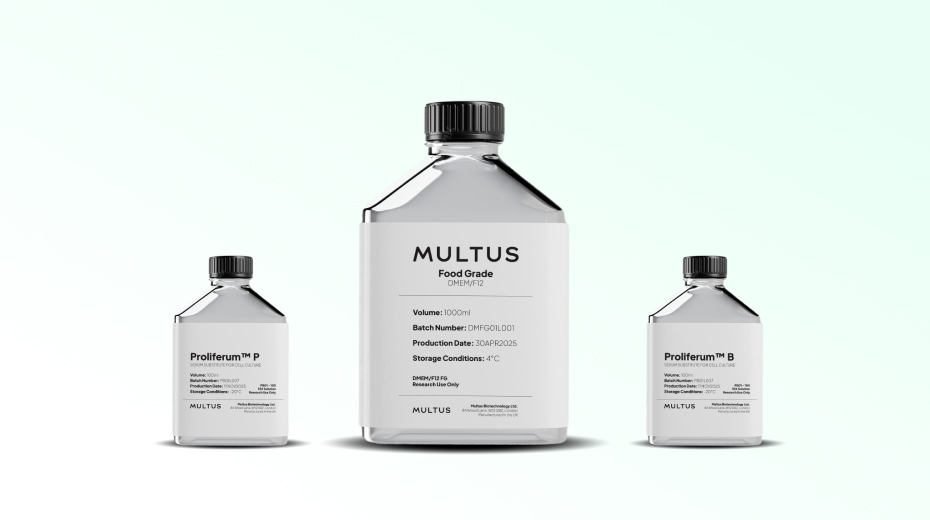Our solutions
Our customers

Product development in biomanufacturing is known for being slow and unpredictable. It typically takes years with suboptimal results. But the industry can’t afford to wait that long, especially when it comes to key upstream inputs like growth media, where slow timelines can bottleneck entire manufacturing pipelines.
That’s why we set an ambitious goal to reduce product development timelines from 2-4 years to ~6 months. In the process, we’ve revolutionised media design through systematic process optimisation.
Keep reading to learn about how we did it.
The global bioeconomy is expanding rapidly, now valued at around $USD 4 trillion, with over 50 nations publishing dedicated bioeconomy strategies (WEF, 2024). However, while downstream innovation accelerates, upstream inputs like growth media are falling behind. There’s growing demand for tailored, animal-component-free media that can meet the specific needs of cells and diverse production platforms, without sacrificing consistency or performance.
When Multus was founded, we chose to start with cultivated meat because it’s one of the fastest-moving and most technically demanding sectors, making it an ideal proving ground for our optimisation platform. We knew that if we could meet the pace, precision, and scalability demands there, we could prove our media design platform’s potential for broader biomanufacturing applications.
Waiting years to validate each new formulation isn’t viable in sectors moving this fast. And relying on pre-existing media bases often limits flexibility, introduces variability, and slows down innovation. We set out to change that by building a platform that accelerates de novo media development, without compromising on precision, scalability, or performance.
We applied our four core capabilities:
We moved beyond traditional, step-by-step experimentation with the help of AI. By exploring millions of possible solutions in parallel, we were able to map the performance landscape in greater detail than ever and pinpoint viable formulations quickly. This dramatically reduced guesswork and accelerated our discovery process.
We integrated automation into our lab workflows to increase experimental throughput, without needing teams of scientists working through the nights and over weekends. This allowed us to compress what would typically take weeks of manual work into just a few days, generating more data, faster.
At the heart of our process is deep human expertise in cell biology and ingredient functionality. This foundation allows us to design media that is biologically effective and commercially viable - optimised for consistency, scalability, and regulatory compliance.
Manufacturing and supply chain planning were built into the process from day one. This proactive approach reduced the lag between lab success and delivery readiness, ensuring each product was scalable and supply-chain ready at launch.
Within the last 6 months, we have delivered three purpose-built media products to address critical gaps in biomanufacturing.
Our first product of 2025, Proliferum® B, was delivered in January as a high-performance, animal component-free alternative to fetal bovine serum (FBS). Designed specifically for use with bovine fibroblasts, Proliferum® B offers faster growth rates, shorter doubling times, and consistent performance over multiple passages. It provides an ethical and sustainable solution for cultivated meat companies struggling with the cost and variability of serum-based media, without compromising on cell performance.
In May, we released FG-DMEM/F12, a food-grade basal medium developed in collaboration with global food and feed suppliers. Unlike traditional basal media, FG-DMEM/F12 is fully food-grade and manufactured under FSSC 22000-certified conditions. Its launch marked a significant step toward making high-quality, affordable inputs more accessible, with full transparency on performance data and formulation.
The most recent addition to our portfolio, Proliferum® P, launched in June and was designed to support the growth of porcine adipocytes - an essential but technically challenging cell type in cultivated pork production. Fat cells play a central role in replicating the sensory experience of conventional pork, yet are difficult to grow at scale due to low proliferation rates, high supplement costs, and complex metabolic requirements. Proliferum® P was developed to address these challenges directly, enabling more cost-effective, high-performing adipose cell cultures for companies developing cultivated pork products.
Together, these three product launches in 1H 2025 demonstrate Multus’ ability to bring high-impact formulations to market at unprecedented speed, using a combination of high-dimensional optimisation, lab automation, and integrated supply chain planning.
We’ve demonstrated the power of our platform, launching three high-impact products across diverse cell types at an unprecedented pace. This validates our approach. The unique combination of our cutting-edge AI-enabled platform, robotic automation, paired with our scientific expertise and supply chain integration, can dramatically improve unit economics, efficiency, costs and development timelines.
Now, with proven traction, commercial demand, and a growing revenue base, we’re scaling our success beyond cultivated meat. The platform is already being applied to new challenges in biopharma, cell therapies, and adjacent areas of the bioeconomy - markets that are increasingly demanding better media, faster.
Our goal is simple: build the media development engine that helps biomanufacturing companies shorten their time to market, while improving supply chain security and unit economics. Ready to unlock the potential of your media? Request a sample today.
Sign up for email updates: